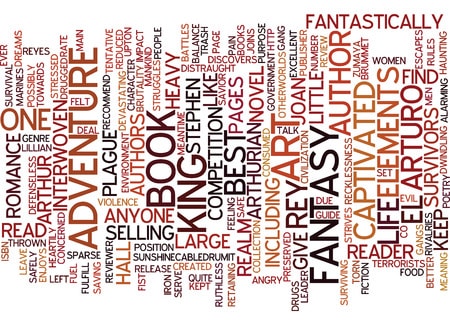We’ve all had this happen. Someone we don’t know, a friend of a friend, asks to be our friend on Facebook, and the minute we accept we get the message, “Buy my book.” The same thing happens on Twitter.
It’s annoying, right? So annoying. Even though we know it’s some poor soul who’s been told he has to “get out there,” and “ask for the sale,” and “close, close, close,” we’re still annoyed.
Why?
When we sell a book, we’re not selling the cover, the paper, and the print
It turns out there’s a good reason. When we sell a book, we’re not selling the cover, the paper, and the print.
We’re selling the story.
From a sales perspective, when we sell a story we’re selling an intangible, something that can’t be experienced until after it is bought.
There are lots of examples of intangible sales: a vacation package, a movie, or a large software installation that has to be loaded with a company’s data, programmed for its processes, and rolled out to many employees before we can know how well it works. It’s because of these large software deals that the selling of intangibles has been so carefully studied.
We buy from people we trust
Since we can’t experience intangibles before we buy them, we buy from people we trust. That’s why so many of us trade books back and forth with family and friends, people who know our taste and whose recommendations are therefore highly persuasive. People who hang out with us on Internet book discussion boards or blogs, whose opinions we’ve come to respect, and who’ve recommended good books to us in the past, can be similarly convincing.
But when a random stranger says, “buy my book,” our first reaction, conscious or not, is “You don’t know me. Where do you come off trying to sell this to me?”
Author Dale T. Phillips says when he is behind a table of his books at a library, store or book fair and people say, “What are your books about?” he always answers, “What do you like to read?” The answer helps him understand which of his books to recommend and how to describe it in a way that is interesting and accessible to the potential reader. If the person likes to read stories that bear no resemblance to his work, Dale recommends a book by someone else.
It’s about what the reader needs
Making recommendations based on what the reader is looking for flips the conversation. It’s no longer about you and your book, it’s about what the reader needs. Meeting his needs is the priority. He feels good, he feels heard, and he feels a lot more confidence in making a purchase.
Remember
It’s best to remember when selling, it’s never about you or your product.
It’s always about the buyer and what the buyer is looking for.

